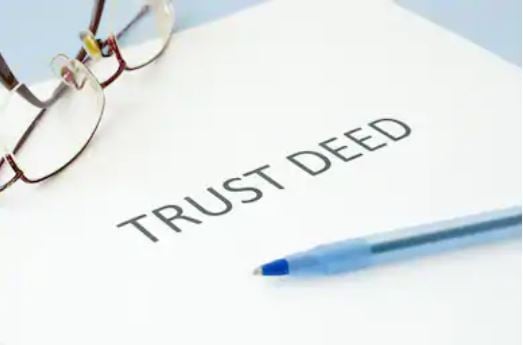 A Scottish trust deed can be defined as a voluntary agreement which is available to the residents of Scotland. The good thing about the Scottish trust deeds is that you can repay only when you are fully able to afford for about 48 months. What we are talking about here is the amount of that has been left after all your living costs have been counted. After repaying the deed all the outstanding liabilities which were included in your trust deed are discharged and what has been paid to the arrangement doesn’t really matter.
A Scottish trust deed can be defined as a voluntary agreement which is available to the residents of Scotland. The good thing about the Scottish trust deeds is that you can repay only when you are fully able to afford for about 48 months. What we are talking about here is the amount of that has been left after all your living costs have been counted. After repaying the deed all the outstanding liabilities which were included in your trust deed are discharged and what has been paid to the arrangement doesn’t really matter.
The rights to the assets that you own will be transferred to them and a trustee, who is the qualified insolvency practitioner, will be appointed. Assets may be sold if they are believed to have any beneficial interest, which is the surplus value after the debts which were secured are taken into account, which will then be passed on to your unsecured creditors. Creditors can still petition for your sequestrations, because the Scottish trust deed does not prevent them to do so, unless there is a protected status that has been given to it. However, the good thing is that you can still proceed, even if the creditors don’t agree that your trust deed is protected.
The Cost of a Trust Deed
The cost of a trust solely depends on how much money you can afford to offer the creditors each and every month. The calculation is done by subtracting the debt payments that you have on a monthly basis and your monthly living costs. If you happen to own a home and maybe you have a mortgage then there may be requirements for you to release some of its equity. However, you have to be able to afford to remortgage it at that time.
In order to set up and administer your trust deed, then you have to pay the Trustee for all that work. However, this will be included in your monthly payments – you will not be required to find any additional money to cover the costs of the trust deed. There is an exception to this, if you during your trust deed you happen to receive a windfall, or the value of your house appreciates to the extent that you are now able to pay the entire amount of your debts.
When to Apply for a Scottish Trust Deed
You can apply for a Scottish trust deed any time. When it comes to the setup, it normally takes about 5 to 8 weeks for the Insolvency Practitioner to draft the Trust Deed proposal. However, depending on the complexity of the case, the period may vary. You can easily apply for a trust deed directly through Scottishtrustdeed.co.uk, as this makes it easier since you’ll do it online. You have to make sure your information is in order. After applying, your proposal will be passed to creditors for their approval. The approval period may take up to two weeks.
Advantages of a Trust Deed
There are plenty of advantages of a Trust Deed. They include:
- When you sign the Trust Deed, all interests and charges on the debts will be frozen.
- All the creditor queries and correspondence will be dealt with by your Trustee.
- Once you pay for your Trust Deed, which may take up to 48 months, then if there is any remaining debt, it will be written off.
- A Trust Deed enables you to make single payments each and every month during the term.
- Creditors will not be able to take any further action against you once your Trust Deed has been given protected status.
 Disadvantages of a Trust Deed
Disadvantages of a Trust Deed
Just like everything else, a Trust Deed also comes with its own drawdowns. They include:
- You will not be able to acquire any other credit which is over £250 until your Trust Deed is fully discharged.
- The Edinburgh Gazette is the one that publishes all the details and this is added to the register of insolvencies.
- If you are unable to remortgage, you will be required to release equity of your property. This can include even selling your home.
- You may end up in bankruptcy in case you fail to maintain your payments according to the agreement that you had.
- The Trust Deed will not be able to stop any debt enforcement which has been sent to recover debts, such as bank account arrestment or even wages.
The Scottish Trust Deed has its own benefits and drawdowns. You just have to make sure that you know exactly what you’re doing. Be sure to conduct further research to learn more about it before you commit to it.

